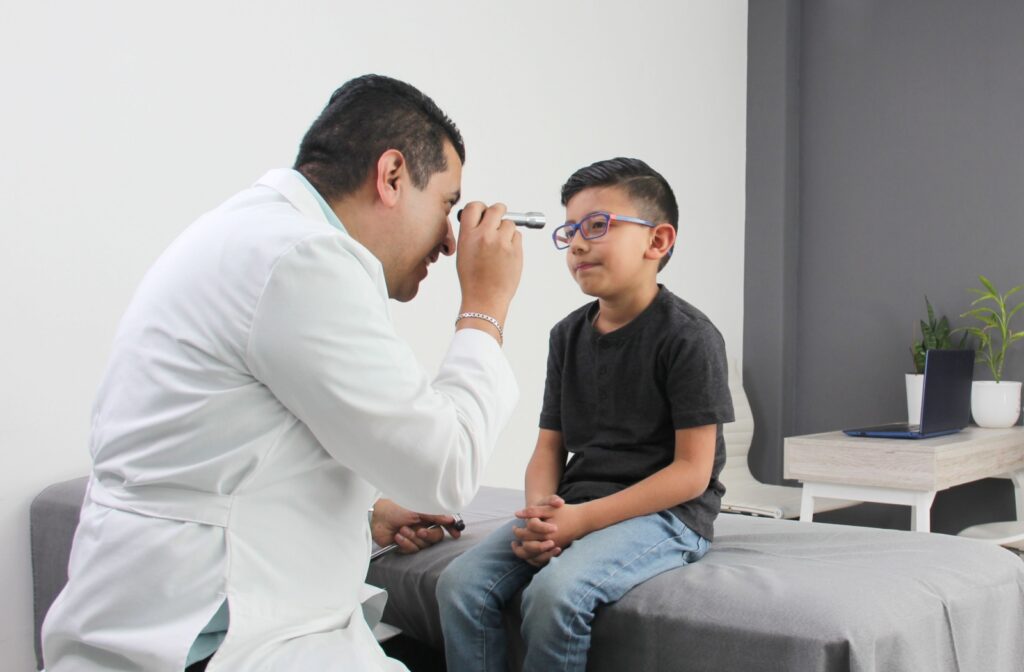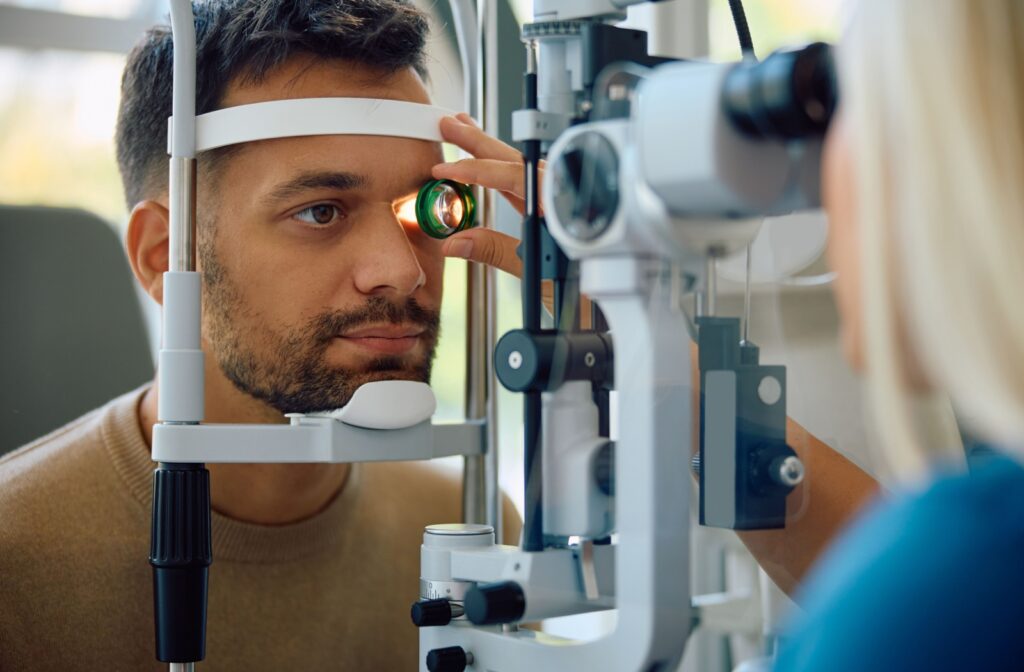Are you wondering whether you really need an eye exam every year? It might be easy to overlook, especially if you feel your vision hasn’t changed. However, annual eye exams are more than just a vision check—they’re essential for maintaining your overall eye health.
Regular checkups can catch vision changes, detect early signs of eye diseases, and even reveal underlying health conditions. Skipping your yearly exam could mean missing out on crucial care that keeps your eyes healthy and your vision sharp.
Changes in Vision
Vision changes can occur gradually, making them easy to miss. Regular eye exams help ensure that your prescription is up-to-date and that your glasses or contact lenses provide the best possible vision correction.
Even subtle vision changes can affect your daily life, from reading to driving, so it’s important to address these changes as soon as possible.
Your optometrist will use various tests to assess your vision and determine whether you need a new prescription.
Detecting Eye Diseases Early
One of the most important reasons to have regular eye exams is the early detection of eye diseases. Many eye conditions, such as:
- Glaucoma
- Cataracts
- Macular degeneration
Develop slowly and without noticeable symptoms until they are advanced. By the time symptoms appear, significant damage may have occurred.
Routine eye exams allow your optometrist to detect these conditions early, usually before they cause noticeable symptoms. Early detection is key because it often means more effective treatments are available.
For instance, glaucoma can be managed with medication or surgery if caught early, preventing vision loss.
Regular eye exams are also essential for monitoring existing eye conditions. If you have a known eye condition, your optometrist will closely monitor its progression and adjust your treatment plan as needed. This ongoing management can help preserve your vision and prevent complications.
Eye Exams for Adults What to Expect Each Year
An annual eye exam for adults typically includes several components. Your optometrist will review your medical history to understand any potential risk factors or existing conditions. Then, they’ll conduct a series of tests to evaluate your vision and eye health. These tests may include:
- A visual acuity test to determine how well you see at different distances
- A refraction test to find the correct lens prescription
- A comprehensive eye health evaluation using various instruments
These tests can detect early signs of eye diseases and other health conditions. You might also discuss your lifestyle and any visual challenges you face, such as computer eye strain.
This helps your optometrist provide personalized recommendations to improve your visual comfort and overall eye health.

The Benefits of Annual Exams for Children’s Eye Health
Children’s eye health is just as important as adults, if not more so. Regular eye exams are important for detecting vision problems that can affect a child’s learning and development.
Children may not be aware they have vision issues, as they may think everyone sees the same way they do. Annual eye exams can catch problems early, like:
- Nearsightedness
- Farsightedness
- Astigmatism
Addressing these issues can improve a child’s school performance and overall quality of life. Clear vision is essential for reading, writing, and engaging in play, all of which are important for a child’s growth.
Additionally, early detection of eye conditions like lazy eye (amblyopia) or crossed eyes (strabismus) can significantly improve treatment outcomes. Regular exams ensure that these conditions are identified and treated promptly, reducing the risk of permanent vision impairment.
Are You at Higher Risk?
Certain factors may put you at a higher risk for eye problems, necessitating more frequent eye exams. These factors include:
- Age: If you’re over the age of 60, you may be at increased risk for conditions like cataracts and macular degeneration.
- Family history of eye diseases: Individuals with a family history of eye diseases like glaucoma should also have their eyes checked regularly, as genetics can play a role in developing these conditions.
- Chronic health conditions like diabetes: Chronic health conditions, such as diabetes, can also increase the risk of eye problems. Diabetic retinopathy, for example, is a serious complication that affects the blood vessels in the retina.
Regular eye exams can help catch these conditions early, ensuring timely intervention and better outcomes.
What Happens If You Skip Regular Eye Exams?
Skipping regular eye exams can have serious consequences for your eye health. Undiagnosed vision problems can worsen over time, leading to decreased quality of life and increased risk of accidents.
Additionally, untreated eye diseases can cause irreversible damage, including permanent vision loss. In addition to eye health, skipping exams may prevent the detection of other health issues.
Eye exams can reveal signs of systemic health problems like high blood pressure and diabetes. Catching these issues early can lead to timely treatment and better health outcomes.
Scheduling Your Annual Eye Exam with Total Vision
Annual eye exams are a vital part of maintaining your eye health. They help detect vision changes and eye diseases early, ensuring you receive timely treatment and preserve your vision.
Whether you’re an adult or a child, regular eye exams are essential for catching issues early and maintaining clear, healthy vision.Don’t wait until you notice a problem to care for your eyes. Schedule your appointment with Total Vision today and take the first step towards protecting your eye health.




